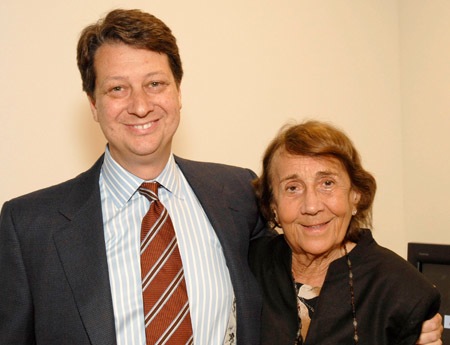Patrons That Pay Want Their Say

The smarter way to stay on top of broadcasting and cable industry. Sign up below
You are now subscribed
Your newsletter sign-up was successful
In mid-April, PBS station WNET New York got the gift of a lifetime, but as so often happens with the most spectacular gifts, it came with some strings attached. The station was given $20 million, the largest bequest in its half-century-plus history, and the donor had specific ideas for how it will be spent—on content designed to combat anti-Semitism.
The blockbuster donation raised the question of how much say a wealthy donor has in the decision-making processes at a local PBS station. Neal Shapiro, WNET president and CEO, says the station will turn down gifts that come with restrictions that don’t fit its mission. “We have to agree that it’s something we want to do,” he told B&C. “Anti-Semitism is something we cover a lot. Nationally and locally, it’s a big issue.”
The donor is the estate of Sylvia and Simon B. Poyta. The former died in 2012, and the latter in 2006, but the estate continues to be a major figure in New York philanthropy. Shapiro noted that Simon Poyta witnessed intense anti-Semitism during World War II, which motivated his estate to create the Sylvia and Simon B. Poyta Programming Endowment to Fight Anti-Semitism within WNET.
Big Fish In PBS Pond
WNET is a major presence within the network of PBS stations. Along with WETA Washington and WGBH Boston, it is a significant producer of programming that is licensed at the local level nationwide.
PBS stations have their own set of guidelines governing the relationship between donations and programming decisions. “Generally, underwriters finance ideas, not program content,” said Al Tompkins, Poynter Institute senior faculty, broadcast and online, via email. “For example, an underwriter who was interested in financing reporting on business, health, diversity or science could designate the money for that but [could] not make the calls on how to tell those stories or what voices to include or exclude.”
Donations are either restricted, which means the donor has a specific wish for their largesse, or unrestricted, where the station is free to spend as it sees fit. Amidst a broadening pool of not-for-profits, sponsors are increasingly putting restrictions on their donations, according to William Marrazzo, president and CEO at WHYY Philadelphia. “They’re less interested in paying the overhead of the company,” he said.
The smarter way to stay on top of broadcasting and cable industry. Sign up below
Station leaders must factor in the nature of the restrictions. “An offer to underwrite one side of a public policy issue—we would not take that gift,” said Marrazzo. “A restricted gift with all sides of an issue [included], we would accept.”
A $20 million donation to a hospital or museum is not unheard of. But the Poytas’ gift to WNET is massive by PBS station standards. “It’s transformational,” said Shapiro. “It’s huge.”
Donors’ wishes, he added, are typically in line with the station’s editorial mission. “People who come to public television are usually watchers of public television,” said Shapiro. “They know what we do.”
GANNETT TV REBRAND THROWS OFF SOCIAL SPARKS
Gannett's name for the publicly traded broadcasting and digital company that it will spin off mid-year caused a stir in social media. The group selected the name Tegna, but did not initially provide much explanation regarding its meaning.
“Tegna is a nod to the more than 100-year-old history of Gannett,” said Gracia Martore, Gannett president and CEO.
A Gannett spokesperson said “Tegna” includes all the letters in “Gannett,” with the repeated letters left out and the parent company’s initial “G” in the center.
Tweeted @nswartsell: “The letters in the company name had to reapply for their jobs, and apparently only some made the cut.”
Tegna will include 46 TV stations and digital assets, including cars.com and careerbuilder.com. Dave Lougee will be president.
Staffers and media pundits will have to get used to the new moniker. Tweeted @kristerr: “DAMMIT I JUST GOT A GANNETT TATTOO.”
Michael Malone is content director at B+C and Multichannel News. He joined B+C in 2005 and has covered network programming, including entertainment, news and sports on broadcast, cable and streaming; and local broadcast television, including writing the "Local News Close-Up" market profiles. He also hosted the podcasts "Busted Pilot" and "Series Business." His journalism has also appeared in The New York Times, The L.A. Times, The Boston Globe and New York magazine.

